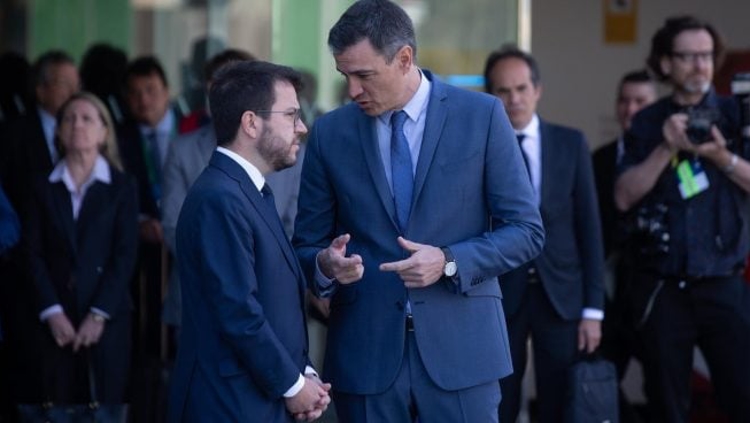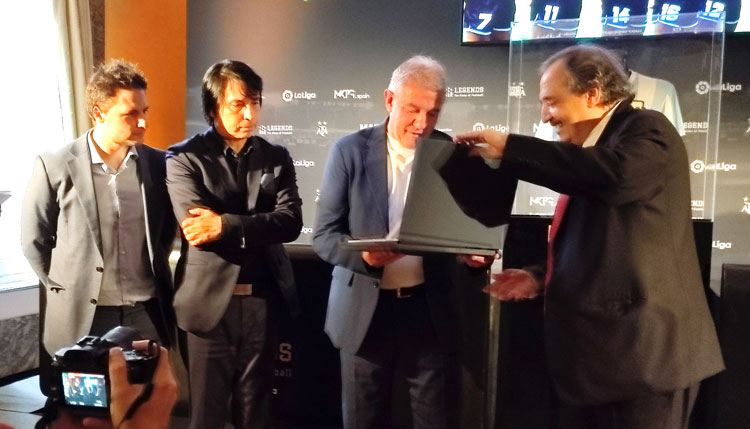Ángel Collado
The mortgages with the independentistas complicate to Pedro Sánchez the rotating presidency of the European Union that he must carry out in the second semester next year, just at the end of the legislature and with the general elections at the door.
The Government is warned that by next summer it must have resolved the blockage of the judicial bodies and guaranteed their independence. But the rupture of relations with the opposition leaves the head of the Executive alone before the demands of the EU and dedicated to satisfy his pro-independence allies.
Sanchez was preparing this week to solve in parallel the two main political problems that threaten his stability in power. On the one hand, he had and has pending the renewal of the governing body of judges and the appointments to the Constitutional Court with which he aspires to control the judiciary and the TC itself. On the other hand, he still had to secure the support of the Catalan separatists of ERC (13 deputies in Congress) for the draft General State Budget which gives life to the Executive for a whole year.
While negotiating with the head of the opposition, Alberto Núñez Feijóo, on names and changes in the General Council of the Judiciary to “depoliticize” it as requested by the EU and postulated by the PP, Sánchez promised the party presiding over the Catalan Generalitat to modify the crime of sedition in the Penal Code.
The ultimate goal of this legal reform is that those responsible for the secessionist attempt of October 1 see their sentences annulled or reduced so that they can return to public office in the case of those convicted as Oriol Junqueras, former vice president of the Generalitat and effective head of ERC. In the case of those fleeing from justice such as Carles Puigdemont, former president of the Generalitat, it would even be facilitated so that he could return to Spain without going to jail. Those are the demands on which the President of the Government negotiates in exchange for the support of the independentistas.
Confirmed by Sánchez in person the commitment of the Executive with the separatists, Feijóo withdrew from the agreement on Justice in order not to appear as an accomplice of the riddle. The president of the PP considers it incompatible to close constitutionalist pacts while the tenant of La Moncloa deals with alleviating the sentences of politicians who violated the constitutional framework.
The President of the Government, with the conglomerate of extreme left, pro-independence and nationalist parties that support him, has enough majority to leave sedition as a misdemeanor in the Penal Code. And he can do it, by the urgency procedure in Congress, in less than two months.
It is much more complicated for Sánchez to consummate his plans to control the judicial bodies and the Supreme Court. The appointments and reforms require qualified majorities of up to three-fifths only achievable with the votes of the PP. But there is also the watchful eye of the European Commission.
The coalition cabinet of the PSOE and Podemos has already considered the possibility of establishing the election of members of the CGPJ by simple majority, that of the parties in power, to divide up the governing body of the judges. The PP denounced the maneuver in the European instances and Sánchez had to back down.
The report of the Commission on the Rule of Law urges Spain to put order in the judicial bodies and to undertake reforms to better guarantee the independence of judges. Just a month ago, the EU Commissioner for Justice, Didier Reynders, was in Madrid and met with representatives of the Executive, the opposition and the affected bodies. He reiterated the pending duties and pointed out a date that directly affects Sánchez by pointing out that “the recommendations” of the Commission on the matter should be in place when the Spanish presidency begins: July 1, 2023.
The Government only wants to talk to the PP about pending appointments with the aim that, in the end, the Constitutional Court is composed of a “progressive” majority to its liking with Candido Conde Pumpido, former Attorney General of the previous Socialist Executive, at the head. But the key “recommendation” of the EU is a change in the system of election of members of the CGPJ that puts an end to party quotas and promotes the election of judges by the judges themselves. In order to meet this requirement, Sánchez needs to give in to the demands of the PP, which would mean being at odds with the pro-independence supporters who hold him in power.
Before next summer he will have to decide with whom he prefers to get along and the Spanish presidency is reserved and designed as a last trump card for personal show-off before the general elections.







